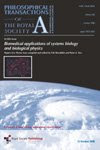Jared Diamond authored two now famous books at the beginning of the new century 2000 " 1.Collapse: How Societies Choose to Fail or Succeed,
and the Pulitzer Prize-winning author of the widely acclaimed
2. Guns, Germs, and Steel: the Fates of Human Societies, which also is the winner of Britain's 1998 Rhone-Poulenc Science Book Prize.
Here, Jared Diamond reviews for us:
"Why Nations Fail: The Origins of Power, Prosperity, and Poverty"
by Daron Acemoglu and James A. Robinson
Diamond's overall assessment of Daron Acemoglu and James A. Robinson’s argument is that inclusive institutions, while not the overwhelming determinant of prosperity that they claim, are an important factor. Perhaps they provide 50 percent of the explanation for national differences in prosperity. That’s enough to establish such institutions as one of the major forces in the modern world. Why Nations Fail offers an excellent way for any interested reader to learn about them and their consequences. Whereas most writing by academic economists is incomprehensible to the lay public, Acemoglu and Robinson have written this book so that it can be understood and enjoyed by all of us who aren’t economists.
Why Nations Fail should be required reading for politicians and anyone concerned with economic development. The authors’ discussions of what can and can’t be done today to improve conditions in poor countries are thought-provoking and will stimulate debate. Donors and international agencies try to “engineer prosperity” either by foreign aid or by urging poor countries to adopt good economic policies. But there is widespread disappointment with the results of these well-intentioned efforts. Acemoglu and Robinson pithily diagnose the cause of these disappointing outcomes in their final chapter: “Attempting to engineer prosperity without confronting the root cause of the problems—extractive institutions and the politics that keeps them in place—is unlikely to bear fruit.”
Diamond's full two page review of Daron Acemoglu and James A. Robinson 's work, is published in The New York Review of Books at the following link:
Why Nations Fail: The Origins of Power, Prosperity, and Poverty
A MUST READ FOR ALL IN THE CURRENT FINANCIAL AND ECONOMIC CLIMATE.





